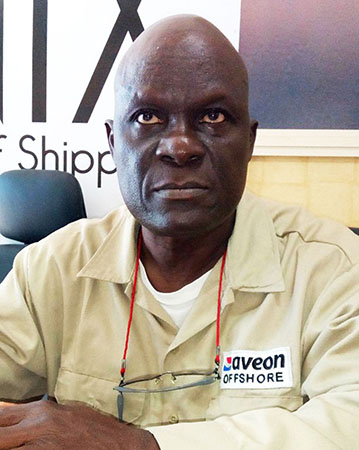
The Nigerian Association of Master Mariners (NAMM) has raised concerns regarding provisions in the new Nigerian Maritime Administration and Safety Agency (NIMASA) Act, particularly the establishment of a coast guard.
Speaking during a lecture in Lagos, NAMM cautioned that this move, now embedded in the new NIMASA Act under the Ministry of Marine and Blue Economy, could not only encroach upon the jurisdiction of the Nigerian Navy but also strain the industry’s budget significantly.
President of NAMM, Capt. Tajudeen Alao, emphasized the importance of ensuring that NIMASA is adequately structured to fulfill its obligations in implementing international maritime conventions and regulations. He stressed the need for NIMASA to focus on implementing key conventions such as SOLAS, International Convention for Prevention of Marine Pollution from Ships, and Ballast Water Management, among others, rather than diverting resources towards establishing a separate maritime security arm.
Alao also highlighted the role of the navy in safeguarding territorial waters and expressed concerns about potential budgetary implications of creating a new maritime security department. He emphasized the need for collaboration between existing maritime enforcement agencies and suggested that support should be directed towards enhancing the capabilities of the navy rather than duplicating efforts.
“Right now the navy is supposed to be in charge,” Alao stated. “It takes a lot to establish another arm of the maritime security, the funding burden will be on the industry.”
Additionally, Capt. Iheanacho Ebubeogu, a former General Manager at the Nigerian Ports Authority, criticized the perceived inconsistency in government policies, particularly regarding maritime security and enforcement. He emphasized the need for a coherent approach to maritime governance to attract investment and stimulate shipping activities in Nigeria.
“On one hand, we are saying the Oronsanye panel is going to trim down government institutions and expenditure, while between the littoral states and Marine Economy, you are going to have NIMASA, NPA, Marine Police, Navy, Coast Guard,” Ebubeogu remarked.
Furthermore, NAMM lamented Nigeria’s missed opportunities in the bunkering sector due to misconceptions and inadequate regulatory frameworks. They urged policymakers to create an enabling environment for bunkering activities, citing potential economic benefits and job opportunities.
“There is nothing like illegal bunkering,” Alao emphasized. “For somebody to have the misconception that all the ships that are anchoring are doing oil deal, you should put structures in place to monitor what they are doing.”
In conclusion, the members of NAMM emphasized the importance of aligning policies with international best practices, enhancing collaboration between maritime agencies, and addressing regulatory gaps to ensure sustainable growth and development in the Nigerian maritime sector.















